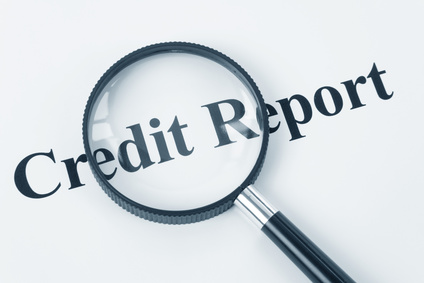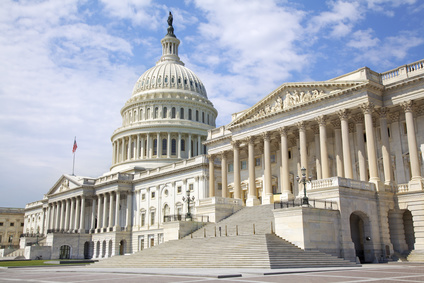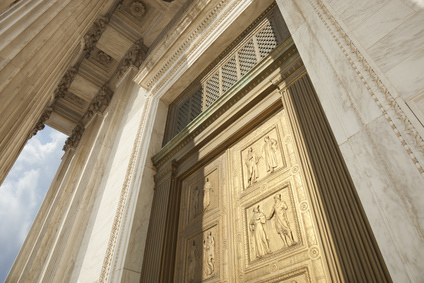The U.S. Court of Appeals for the Eleventh Circuit recently held that a voicemail from a debt collector that merely asks for the debtor to call back constitutes an initial communication under the federal Fair Debt Collection Practices Act (FDCPA) requiring the so-called “mini-Miranda” warning. In so ruling, the Court also held that a debt collector employee does not need to reveal his or her name to provide “meaningful disclosure” of the caller’s identity. A copy of the opinion in Hart v. Credit Control, LLC is available at: Link to the Opinion. The defendant debt collector left a voicemail for the…
Posts published in “FDCPA”
Fair Debt Collection Practices Act
In a split decision, the U.S. Court of Appeals for the Fifth Circuit recently decided that attorneys representing a condominium association did not violate the federal Fair Debt Collection Practices Act by threatening non-judicial foreclosure on debt that was partially but not fully time barred. A copy of the opinion in Mahmoud v. De Moss Owners Ass’n Inc. is available at: Link to Opinion. The plaintiffs owned a condominium in Houston, Texas. They sued the condominium ownership, its management company and its collection lawyers concerning their efforts to collect assessments and other charges under the association’s declaration and related documents.…
The U.S. District Court for the Eastern District of New York recently granted in part and denied in part a mortgage servicer’s motion to dismiss a borrower’s claim that the servicing transfer notice supposedly violated the federal Fair Debt Collection Practices Act (FDCPA) because it allegedly did not disclose that the debt was increasing due to interest, and that a “door knocker” notice posted on the borrower’s door failed to state that it was from a debt collector. The Court held that under Avila v. Riexinger & Associates, LLC, 817 F.3d 72 (2d Cir. 2016), a debt collector must disclose…
In a deeply divided opinion, the U.S. Court of Appeals for the Seventh Circuit, in an en banc review, reversed its previous opinion, Oliva v. Blatt, Hasenmiller, Leibsker & Moore, LLC, 825 F.3d 788, 791 (7th Cir. 2016), holding this time that a debt collector that relied upon circuit precedent interpreting the federal Fair Debt Collection Practices Act (FDCPA) venue provision was not protected by the bona fide error defense. In so ruling, the Court also held that for purposes of compliance with the FDCPA, reliance on court precedent is permitted, but only if there can be no doubt whatsoever as to the accuracy…
A recent decision from the Third Circuit Court of Appeals examines both the provision of consent under the federal Telephone Consumer Protection Act (TCPA) and the bona fide error defense for debt collectors under the federal Fair Debt Collection Practices Act (FDCPA). The decision has dire implications for debt collectors, creditors and any commercial enterprise using telephone technology and QR codes in communicating with customers. A copy of the decision in Daubert v. NRA Group, LLC is available at: Link to Opinion. First up is the TCPA. The trial court ruled that the collection agency violated the TCPA when it used…
The U.S. Court of Appeals for the Fifth Circuit recently affirmed summary judgment under the Fair Debt Collection Practices Act (FDCPA) in favor of the debtor and against a debt collector, where the debt collector failed to mark the debtor’s account as disputed when it credit reported the account. The debt collector admitted that it had not marked the account as disputed because it incorrectly believed that credit reporting a debt as disputed was subject to the requirements of 15 U.S.C. § 1692g, which governs validation of a debt and the treatment of disputed debts. In so ruling, the Fifth…
With its unanimous ruling yesterday that a debt buyer is not a “debt collector” under at least one reading of the federal Fair Debt Collection Practices Act, the U.S. Supreme Court offered some clarity to the financial services industry seeking to assess debt purchaser FDCPA liability. It did, however, refuse to address an alternative interpretation that will likely be used in an attempt to end-run the ruling. The decision in Henson v. Santander Consumer USA Inc. is available at: Link to Opinion. Debt Collector Must Be Collecting for ‘Another’ Santander Consumer USA Inc. acquired defaulted loans from CitiFinancial Auto and then…
A purchaser of a defaulted debt who then seeks to collect the debt for itself is not a “debt collector” subject to the federal Fair Debt Collection Practices Act under an opinion delivered today by the U.S. Supreme Court. The issue before the Court was whether a purchaser of defaulted debt meets the FDCPA’s definition of a “debt collector” as one who “regularly collects or attempts to collect . . . debts owed or due . . . another.” 15 U. S. C. §1692a(6). Here, Santander Consumer USA Inc. acquired defaulted loans from CitiFinancial Auto and then began to collect…
The U.S. Court of Appeals for the Eleventh Circuit recently affirmed the dismissal of a complaint alleging violations of the federal Telephone Consumer Protection Act, the federal Fair Debt Collection Practices Act (FDCPA) and its analogue under Florida state law, because the plaintiff previously filed a separate lawsuit against the same defendant alleging violations of the TCPA based on the same conduct. Because the Eleventh Circuit concluded that the claims asserted in the second action were based on the same nucleus of operative facts, the plaintiff was barred from splitting her claims among the lawsuits. A copy of the opinion…
The U.S. Court of Appeals for the Ninth Circuit recently amended its opinion in Ho v. ReconTrust Co., maintaining and affirming its prior ruling that the trustee in a California non-judicial foreclosure did not qualify as a debt collector under the federal Fair Debt Collection Practices Act (FDCPA). The amendments to the prior ruling among other things add that a California mortgage foreclosure trustee meets the FDCPA’s exclusion from the term “debt collector” for entities whose activities are “incidental to … a bona fide escrow arrangement” at 15 U.S.C. § 1692a(6)(F). The Ninth Circuit also removed its prior discussion of…
The U.S. Bankruptcy Court for the Middle District of Alabama recently held that a mortgage servicer did not violate the discharge injunction in 11 U.S.C. § 524 by sending the discharged borrowers monthly mortgage statements, delinquency notices, notices concerning hazard insurance, and a notice of intent to foreclose. Moreover, because the borrowers based their claims for violation of the federal Fair Debt Collection Practices Act, 15 U.S.C. § 1692, et seq., on the violation of the discharge injunction, the Court also dismissed their FDCPA claims with prejudice. A copy of the opinion in Golden et al v. Carrington Mortgage Services,…










